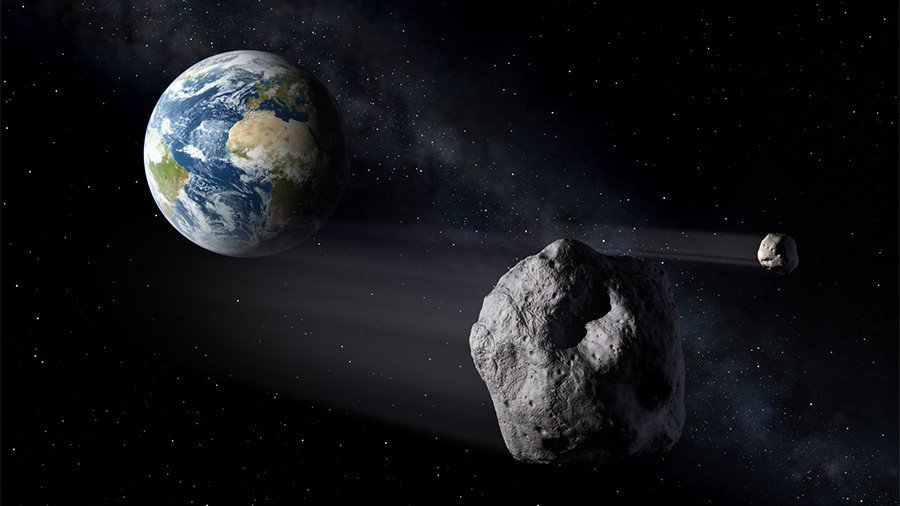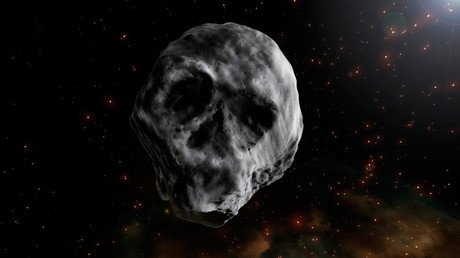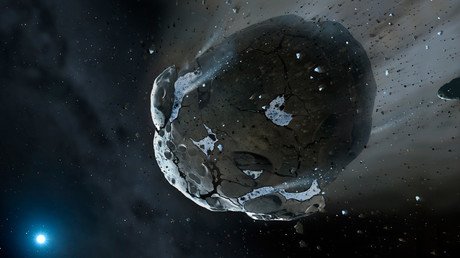‘Potentially hazardous’: Colossal asteroid will fly past Earth tonight

An asteroid bigger than the world’s tallest building is set to whizz past the Earth at a speed of 76,000 miles per hour (122,000kph) Sunday night.
The space rock, known by the catchy name of ‘2002 AJ129,’ measures up to 0.75 miles (1.2kms) wide. That’s a sight bigger than the Burj Khalifa in Dubai, the tallest building on Earth which stretches around a half a mile into the sky.
Eerie-sounding name aside, there is no immediate cause for alarm. Despite being tagged as “potentially hazardous” by NASA, it is said that the asteroid has zero chance of colliding with us on Earth.
Asteroid, larger than the world’s tallest building, heading to Earth at a speed of 76,000 miles per hour https://t.co/Y6BF5qXHmLpic.twitter.com/16n6yavLxp
— RT (@RT_com) January 21, 2018
Asteroid 2002 AJ129 will pass within 2.6 million miles (4.2 million kms) of Earth. That’s more than ten times the distance between the moon and our home planet.
It’s not as if NASA haven’t been keeping an eye on the hypersonic rock, either. The space agency has been perhaps as fearful as anyone that it could smash into Earth and send us the way of the dinosaurs. No – scientists have been tracking ‘2002 AJ129’ for the last 14 years.
An asteroid we’ve had our eye on for over 14 years will make a close approach to Earth today. No need to worry, during its closest approach, the asteroid will be no closer than 10x’s the distance between Earth & the Moon, which is ~2.6 million miles: https://t.co/OBVckOyvWQpic.twitter.com/UyGcfOKAcw
— NASA (@NASA) February 4, 2018
"We have been tracking this asteroid for over 14 years and know its orbit very accurately," added Paul Chodas from NASA’s Jet Propulsion Laboratory. “Our calculations indicate that asteroid 2002 AJ129 has no chance – zero – of colliding with Earth on February 4 or any time over the next 100 years."
This is good news us Earthlings. If the giant rock did hit it would cause some serious, long-lasting damage. Research from 2016 estimated that such a strike could cause "a very severe global impact" for several years, even heralding a mini ice age. And if a rock ten times the size of ‘2002 AJ129’ struck the Earth, it would be game over.














